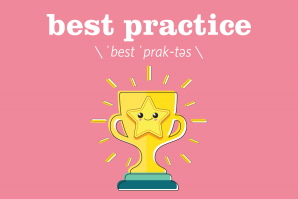Chances are you know a solopreneur. They may be a consultant or maker. The term, a portmanteau of “solo” and “entrepreneur,” was first used in 1992 to describe an independent entrepreneur, someone who developed a business that they run alone, without any employees.
Some choose solopreneurship because of the flexibility it provides versus the traditional corporate career path. Others become an expert in their field while working as an employee, then venture out independently to provide their services.
Click here to see more of our Buzzwords series
The Buzz
For Cassandra Vogeli, owner of Resonance, it’s all about paving her own path. As a wellness worker and meditation teacher who has an M.A. in marriage and family therapy, she provides tools, resources, and workshops to help others online and in person.
Vogeli says she has observed some confusion about what a solopreneur is and how it differs from being an entrepreneur or small-business owner. An entrepreneur may start a business with the intent to employ others and scale and ultimately sell the business, but a solopreneur sets out to own it all: the organization, management, the actual work and all the fun risk that comes along with it.
“Small-business owners might aim to keep their business small, but they still employ others, and a solopreneur does not,” Vogeli says.
The Word
With 41 million adults working independently, according to the 2019 MBO Partners “State of Independence in America Report,” solopreneurship doesn’t show signs of slowing down. “I think that with our (millennial) generation … the marketplace is drastically changing because we care more about the environment and purpose and buying things from smaller artists,” Vogeli says, adding that independence is part of those values.
Although millennials may be credited with a more independent spirit, older generations have long created and managed their own businesses as well. Partially responsible for that perception in recent years is the availability of technology to support solopreneurs’ needs and goals. Vogeli points to a slew of tools that independent business owners now have at their disposal: Shopify, Etsy, Squarespace and social media platforms that can be used to promote an independently owned brand.
Another reason people are more empowered to create their own business is, of course, to create something about which they are passionate, while avoiding the experience of having or being a boss.
“What I like about being a solopreneur is that I can collaborate (with others), but there’s no hiring, no firing, there’s no vetting or managing people,” Vogeli says. “I’m just not a person to manage others. Some people are so good at it and are drawn to building teams, but for me, it’s cool to pave a path that I feel lit up by without having to worry about meeting those skills.”
—
Stay up to date on business in the Capital Region: Subscribe to the Comstock’s newsletter today.
Recommended For You

Buzzwords: Onboarding
The process by which a new employee is integrated into a company, from learning where the bathroom is to understanding the company culture
If you’ve ever started a new job and were told you were going to be “onboarded,” you may have had nightmarish visions of being connected up to the Borg or having your retinas scanned. (No? Just me? Maybe I watch too much science fiction.)

Buzzwords: Best Practice
A method that establishes a standard way of doing things as a means of driving higher performance, success, ideal behavior or ethics.
Professionals use the term as a guiding principle or methodology for consistency and to drive the greatest results.

Buzzwords: Open Source
At first encounter, open source sounds like something an avid yogi might achieve en route to nirvana. In reality, it’s a reaction to a particular kind of tech-induced headache.



